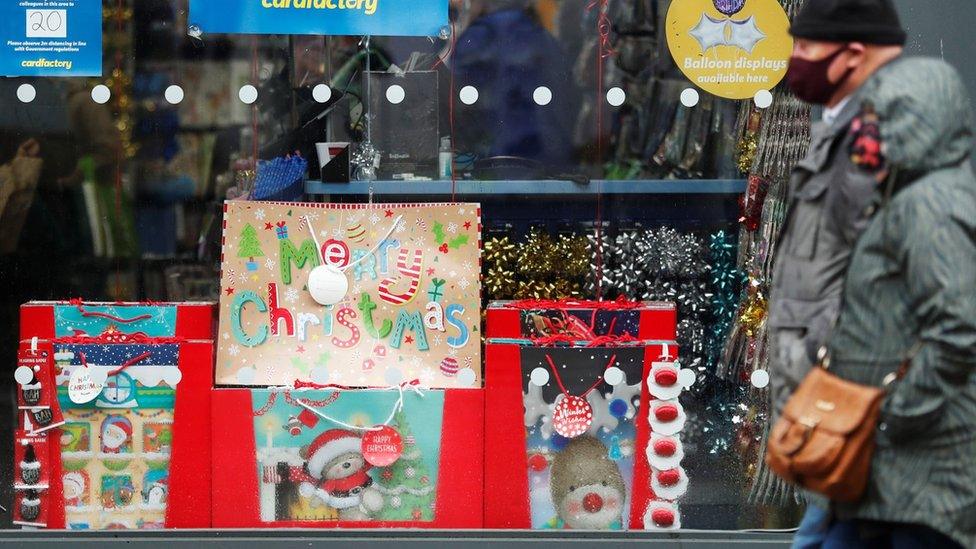Do Scots back a Christmas break from Covid restrictions?
- Published
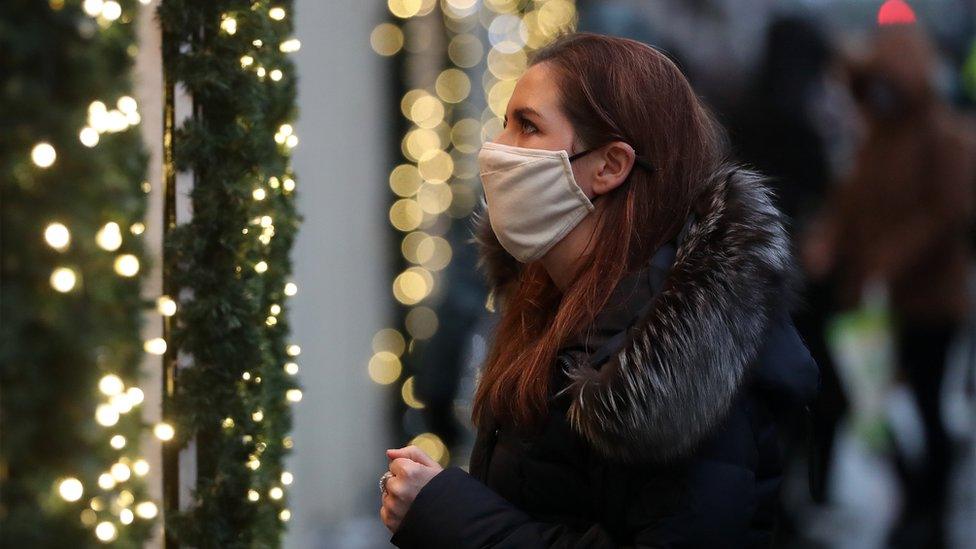
As two million Scots prepare to move to the top tier of Covid measures in a bid to create "flexibility" over Christmas, a survey for BBC Scotland suggests many want a festive break in restrictions.
The poll by Ipsos Mori saw 67% back the government in setting "strict rules", and 51% favour a new national lockdown.
However the survey also suggested that 56% of respondents wanted measures to be relaxed around Christmas Day.
First Minister Nicola Sturgeon has said she "desperately" wants to do this.
Scottish ministers have been in talks with counterparts in Whitehall, Wales and Northern Ireland to devise a UK-wide approach to allow families to gather for Christmas.
About 2.3m people in Scotland will be subject to the highest level of Covid-19 measures from 18:00 on Friday, with 11 council areas around Glasgow and the central belt moving into level four. of the country's tiered system.
This will see non-essential shops, pubs, restaurants, cafes and gyms shut down, with people told to stay at home or as close to home as possible and a legally-enforceable travel ban in place.
Ms Sturgeon has said this was aimed at "having an impact in advance of Christmas and the challenging winter period".
The survey for BBC Scotland - which saw 1,037 people interviewed between 10 and 15 November - suggested that Scots are largely happy to have the government impose tight restrictions.
The poll saw 67% of respondents agree that "the government needs to set strict rules about how people should behave", compared to 28% who said people "need to be given more scope to decide for themselves which behaviours are too risky".
This is similar to previous UK-wide surveys, external which suggested 70% of respondents thought people should follow Covid-19 guidelines whether they like them or not, because they are "society's rules".
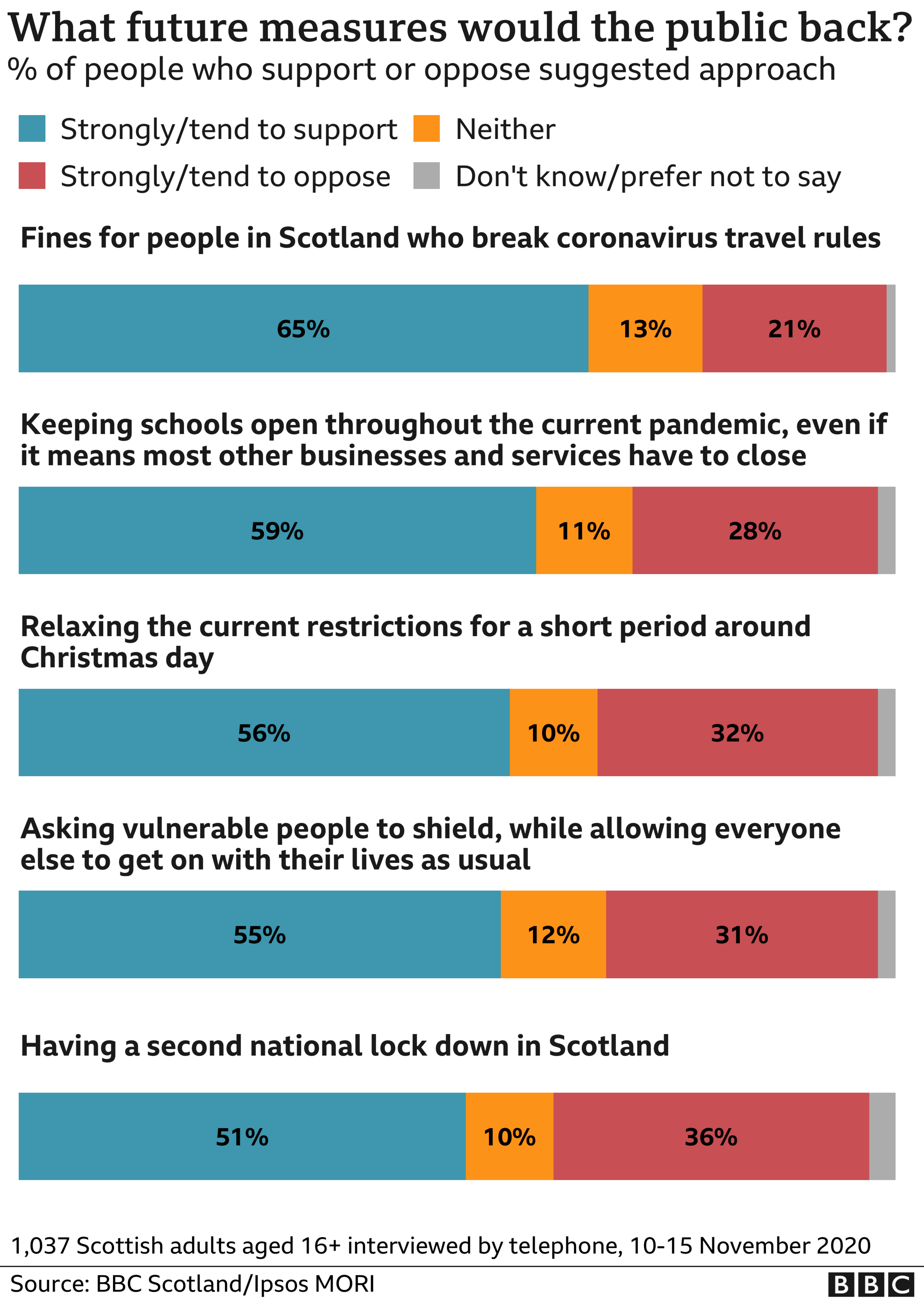
The survey found 51% of people were in favour of "a second national lockdown in Scotland", to 36% who opposed it.
However, there was also majority support for relaxing restrictions "for a short period around Christmas Day", with 56% backing this and 32% against it.
Ministers are currently examining how to relax the rules to allow families to mix for a limited period over Christmas, with a "common approach" to be taken around the UK.
And the first minister has said the move to escalate measures in the west of the country was in part to "give us the best possible chance of being able to ease restrictions in all parts of Scotland for Christmas".
At her daily coronavirus briefing on Wednesday, Ms Sturgeon said the government was trying to come to a "sensible position" which would allow people to see each other on December 25.
She said: "I think at Christmas, rather than leave people with restrictions that are so tight that many people will try and get round them to see loved ones, it is better to treat people like grown-ups and say here is a bit of leeway that - as long as we all behave responsibly - allows us to have some more time with loved ones."
FM: More restrictions now may allow easing at Christmas
The survey suggested that it has been the ban on household gatherings which has been toughest for people to cope with.
While 95% of respondents said they follow the rules all or most of the time, only 20% said they found them "very easy" to comply with.
Among those who expressed concerns, 65% said not being allowed to meet people at home was "difficult to live with", with 40% singling out travel restrictions.
Meanwhile 31% said they were finding restaurant closures and restrictions on eating out hard, with 19% citing pub closures and another 19% the wearing of face coverings.


Eight months into coronavirus restrictions, there is no sign of a big pushback against these curbs on our freedoms.
However frustrating being bossed about by government may be, we seem willing to accept that to help fight the virus.
But perhaps there are limits. A clear majority want a break over Christmas - a temporary easing when people traditionally spend time with family.
When the Bishop of Paisley first suggested that idea, he was criticised by some because relaxing the rules will make it easier for Covid to spread.
Public health experts certainly expect a spike in cases in January caused by festive gatherings.
But minsters across the UK are seriously looking at a limited reprieve during the Christmas period - to give the public something back for the extra restrictions being imposed on many over the coming weeks.

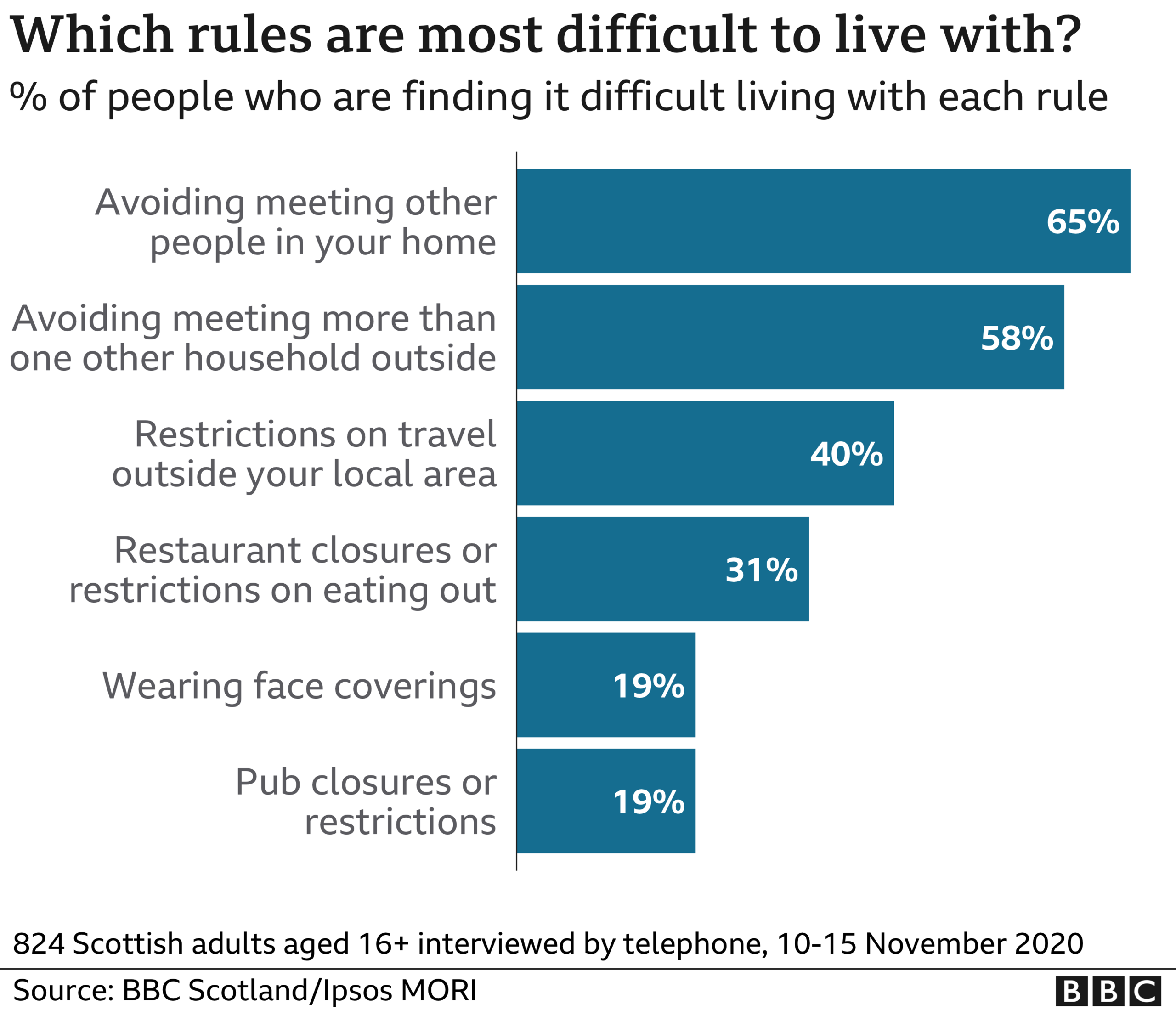
The survey also suggested people wanted the government to act faster in imposing curbs, with 49% saying harsher restrictions introduced in late September - including the ban on household visits - had come "too late".
There were also calls for stricter punishments, with 48% of respondents saying the consequences for breaking the rules are "not harsh enough", to 39% who said they are "about right".
Older age groups were the most likely to say punishments were not harsh enough, with 59% of those over 55 backing tougher enforcement - compared to 33% of 16 to 34-year-olds.
The survey also saw 65% of respondents back fines for people who break travel rules - another measure which is to come into force on Friday - against 21% who opposed them.
And 59% of people who took part backed the government's strategy of keeping schools open even in areas where most other businesses and services are shut down.
The government has pledged to try to keep schools open throughout Scotland, regardless of the level of local restrictions, although there have been calls from teaching unions to reintroduce some remote learning over safety concerns.


- Published17 November 2020
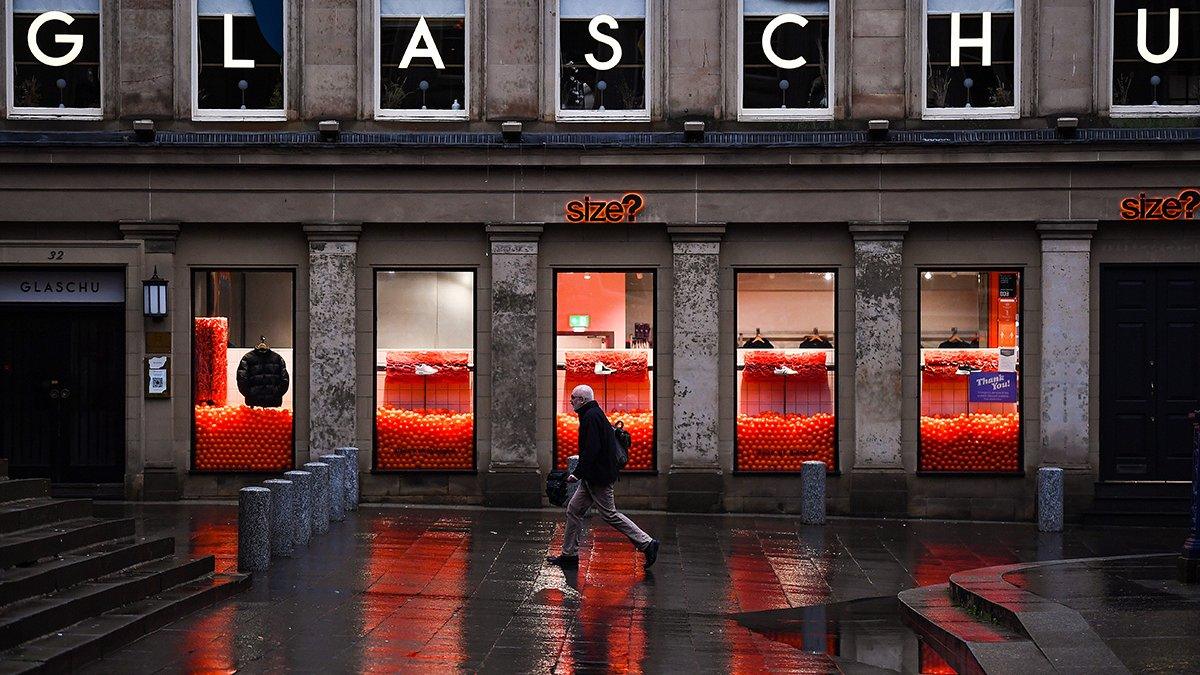
- Published22 October 2020
